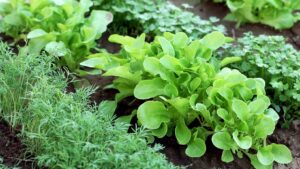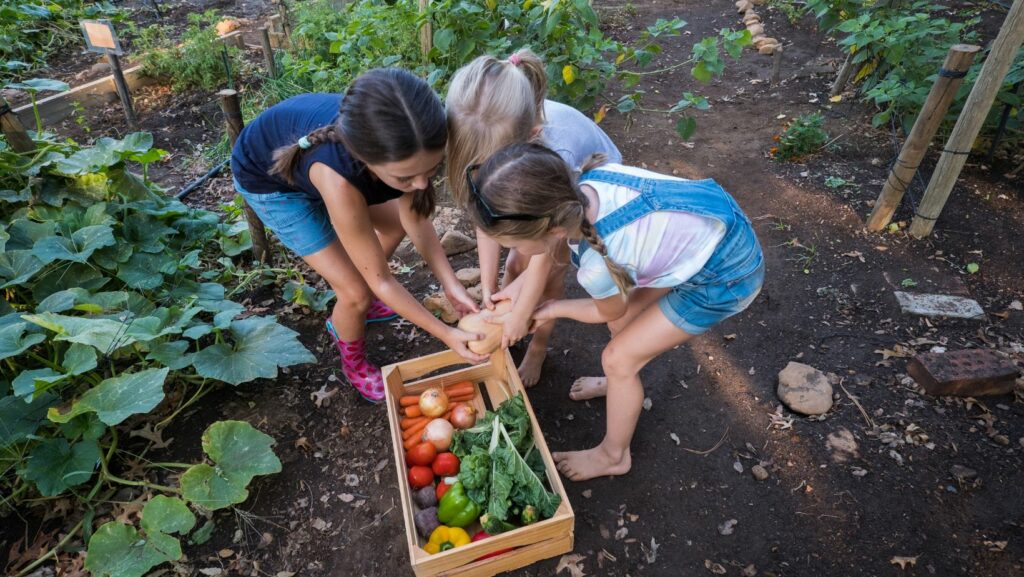In the world of healthy living, organic vegetable gardening is rapidly gaining ground. It’s a green thumb’s answer to cultivating fresh, nutritious produce right in the backyard. This practice not only offers the satisfaction of growing food from scratch but also ensures that what lands on the plate is free of harmful pesticides.
Organic vegetable gardening is more than just a hobby—it’s a lifestyle choice that’s eco-friendly and health-conscious. It’s about embracing the rhythm of nature, understanding the soil, and nurturing plants without synthetic aids. This article will delve into the hows and whys of organic gardening, offering valuable insights for both novice and seasoned gardeners.
So, if you’re ready to get your hands dirty and reap the benefits of home-grown organic vegetables, you’re in the right place. Stay tuned as we unearth the secrets of successful organic vegetable gardening.
Benefits of Organic Vegetable Gardening
 Transitioning from buying store-bought vegetables to growing them in your backyard organically has numerous benefits. These perks not only enrich your health but also foster a more sustainable environment.
Transitioning from buying store-bought vegetables to growing them in your backyard organically has numerous benefits. These perks not only enrich your health but also foster a more sustainable environment.
Growing your vegetables organically means you’re eating food free from harmful pesticides. Gardening itself also works as a form of exercise, offering the body physical benefits aside from the nutritional gain. Planting, watering, tending, and harvesting require movement and engagement, which contribute to maintaining a healthy physique. For instance, digging the soil for planting may seem simple, but it contributes to the burning of calories, promoting heart health.
Furthermore, consuming home-grown, organic vegetables provides the body with essential nutrients that are often lacking in store-bought produce. Simply think about biting into a home-grown organic tomato, brimming with vitamins like A, C, and K, not to mention the robust flavor profile that accompanies it.
Environmental Impact
Organic vegetable gardening positively affects the environment. For one, it cuts down on the carbon footprint created by transporting produce from the farm to your table. Think about the number of miles your store-bought lettuce has to travel. If you grow it yourself, the distance radically reduces to a few steps from your garden to your kitchen.
Planning Your Organic Garden
 After getting a glimpse into the benefits of organic vegetable gardening, we now turn our attention to the preliminary planning process. This section highlights the initial steps, from choosing the right location to soil preparation and management.
After getting a glimpse into the benefits of organic vegetable gardening, we now turn our attention to the preliminary planning process. This section highlights the initial steps, from choosing the right location to soil preparation and management.
Selecting an appropriate site for an organic vegetable garden bears prime importance. It’s not just about finding a patch of land, but verifying certain conditions. Sunlight plays a pivotal role in plant growth. Most vegetables, such as tomatoes, beans, or squash, require a minimum of 6 hours of direct sunlight daily.
When assessing soil quality, consider its composition and nutrient content. Healthy soil teams with microorganisms, working behind the scenes of organic vegetable growth. It starts with a soil test to provide insights on pH levels and available nutrients. Organic materials such as compost or aged manure enhance soil fertility. Cover crops incorporated into the garden during offseasons can protect and enrich the soil. It’s recommended to refrain from tilling, as rigorous tilling disrupts beneficial soil life.
Organic Vegetable Gardening
 Building upon their knowledge about organic vegetable gardening – including health benefits, environmental impact, and planning strategies – readers now gain insight into key techniques. The focus is twofold – composting basics and natural pest control. Composting, an integral part of organic gardening, turns organic waste into nutrient-rich soil. Its implementation isn’t merely a suggestion, it’s essentially a mandate for organic gardening. Composting’s significance lies in its ability to provide plants much-needed nutrients and improve soil structure, thereby promoting plant growth.
Building upon their knowledge about organic vegetable gardening – including health benefits, environmental impact, and planning strategies – readers now gain insight into key techniques. The focus is twofold – composting basics and natural pest control. Composting, an integral part of organic gardening, turns organic waste into nutrient-rich soil. Its implementation isn’t merely a suggestion, it’s essentially a mandate for organic gardening. Composting’s significance lies in its ability to provide plants much-needed nutrients and improve soil structure, thereby promoting plant growth.
Three core elements form compost: browns, such as dead leaves for carbon; greens, like vegetable waste for nitrogen; and water for moisture. It’s a simple, yet efficient process providing garden soil with plentiful nutrients that commercially available fertilizers can’t match.
To create compost, one layers browns and greens alternately, with water added between each layer. Under natural conditions, decomposition occurs within a few weeks to months, suggesting patience certainly pays off in organic gardening.

